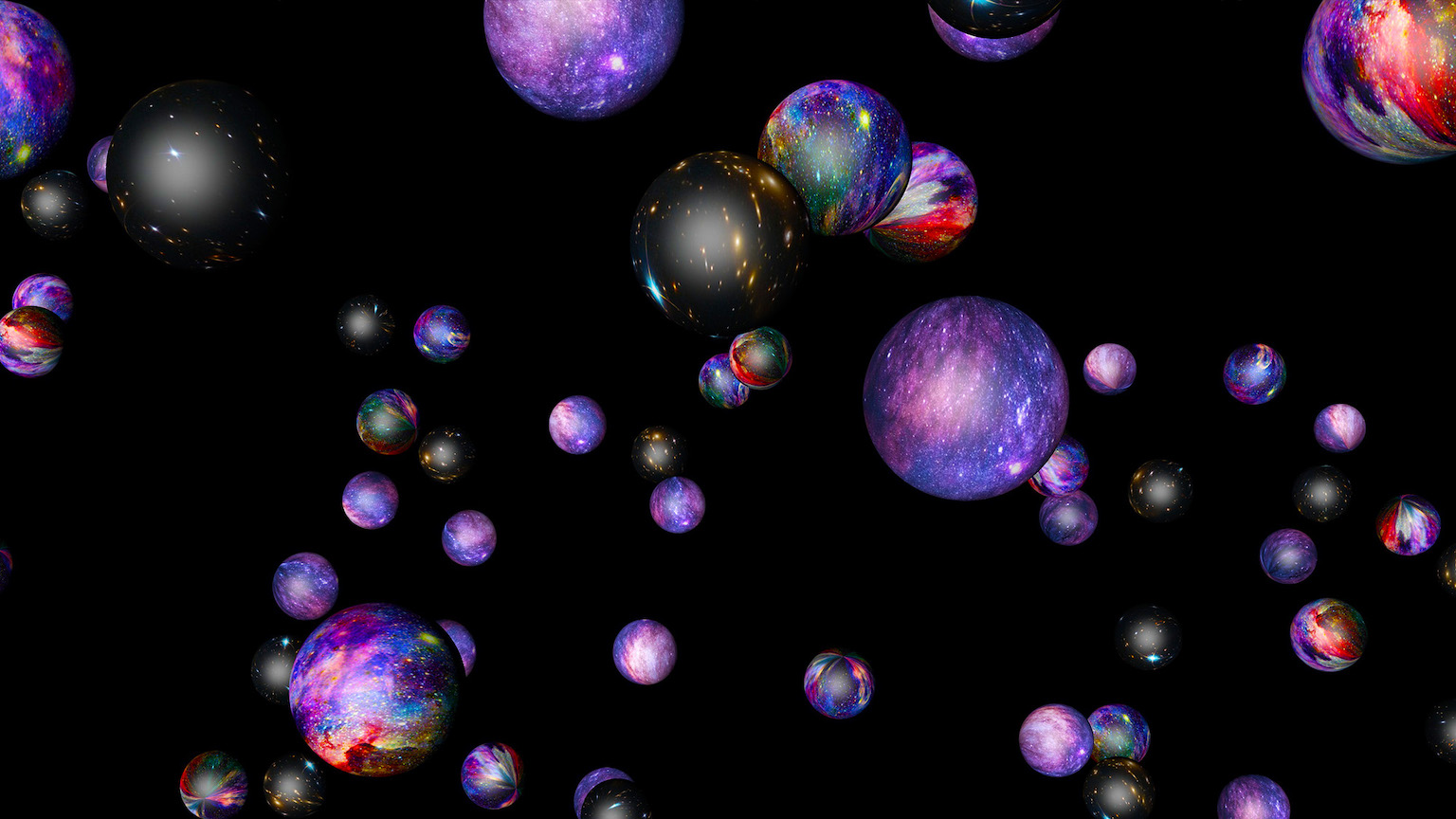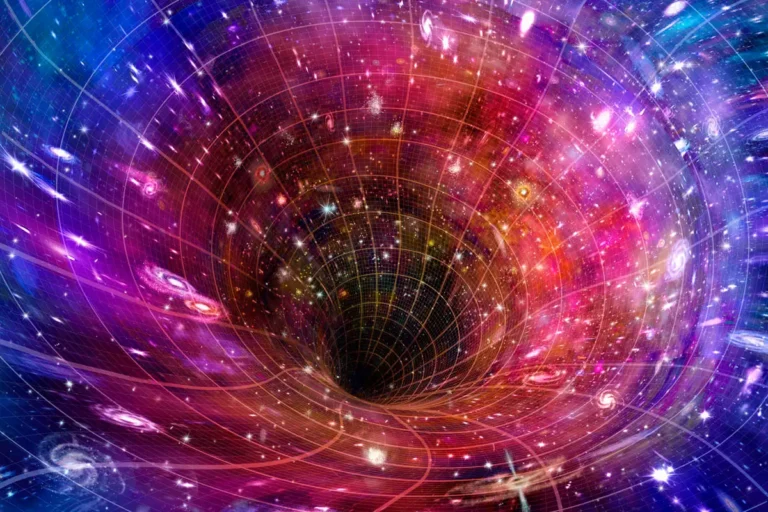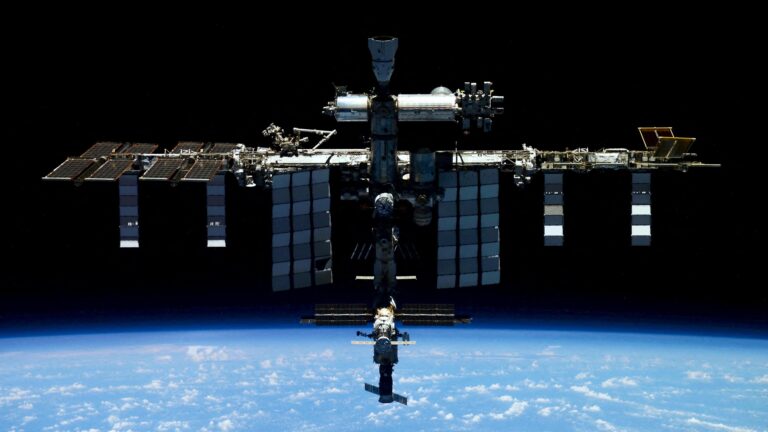Immerse yourself in the limitless world of cosmic exploration as we delve into one of the most thought-provoking topics in the realm of theoretical physics – the concept of a multiverse. Imagine our universe, a vast expanse of galaxies, stars, and planets, is not alone but is just one of countless other universes, each with its own laws of physics, dimensions, and reality. This hypothesis challenges the very fabric of our understanding of existence, and its implications are monumental.
The aim of this exploration is to unlock the mysteries that shroud the possibility of a multiverse and to reveal its potential impact on our reality. Are we just a tiny fragment in an ever-expanding cosmos of parallel universes? Could there exist other versions of us, living out entirely different lives in these alternate realities? These are the mind-boggling questions we aim to explore in the upcoming discussion.
Navigating through the theoretical underpinnings of the multiverse, we’ll engage with the thought processes of esteemed physicists and cosmologists. We’ll take a closer look at the potential proof supporting the existence of a multiverse, from quantum mechanics to string theory, and the cosmological inflation theory. The aim is not just to question, but to comprehend the incomprehensible.
As we journey through this cosmic maze, we’ll also delve into the potential impacts of the multiverse on our reality. How would the existence of a multiverse influence our philosophical and scientific understanding of reality? Could it potentially redefine our perception of life, identity, and destiny? The answers to these questions promise to be as astounding as the questions themselves.
Get ready to traverse the boundaries of conventional wisdom, to challenge the known and explore the unknown. Brace yourselves for an intergalactic journey, as we set out to unlock the mysteries of the cosmos and explore the fascinating possibility of a multiverse and its impact on our reality. The cosmos is calling. Are you ready to answer?
The Concept of the Multiverse
In the realm of cosmology, the concept of a multiverse posits the existence of multiple universes, each with its unique physical laws and constants. This notion, though initially purely speculative, has gained traction through advancements in theoretical physics and cosmology. A multiverse, in essence, is a collection of universes, each functioning independently yet potentially interlinking with each other through certain mechanisms.
Theoretical Frameworks
Two primary theoretical frameworks underpin the concept of the multiverse – quantum mechanics and string theory. Quantum mechanics, a cornerstone of modern physics, suggests the possibility of multiple realities through the interpretation of quantum superposition. The universe, as we know it, may merely represent one of many possible outcomes of quantum fluctuations.
On the other hand, string theory, a relatively newer and more controversial framework, postulates the existence of multiple dimensions – up to eleven, according to some models. These extra dimensions, while not directly observable, could potentially host an infinite number of universes, each with its unique laws and constants.
The Implications of a Multiverse
Should the existence of a multiverse be proven, it would undoubtedly have profound implications on our understanding of reality. A multiverse could, for instance, provide an explanation for the fine-tuning of physical constants in our universe.
Fine-Tuning Problem
The so-called fine-tuning problem refers to the precise balance of physical constants in our universe, enabling the existence of life as we know it. In a multiverse scenario, however, our universe’s fine-tuning could be simply due to chance. With an infinite number of universes, each with varying laws and constants, the existence of a universe such as ours becomes statistically likely.
Cosmological Constant Problem
The cosmological constant problem, another puzzle in cosmology, could also be potentially resolved by a multiverse. The cosmological constant, a term introduced by Einstein in his field equations, is associated with the energy density of the vacuum. Observations indicate that the cosmological constant is incredibly small, yet non-zero – a fact that has yet to be satisfactorily explained. In a multiverse, different universes could have different cosmological constants, making ours just one amongst many possibilities.
The Challenge of Observability
One of the biggest challenges in proving the existence of a multiverse is observability. Given our current understanding of physics and the limitations of our technology, we have no direct way of observing other universes.
Indirect Evidence
Despite this, several indirect lines of evidence could potentially support the existence of a multiverse. For instance, the cosmic microwave background, the afterglow of the Big Bang, might contain imprints of other universes. Some cosmologists also suggest that the distribution of galaxies in our universe could be influenced by the gravitational pull of other universes.
Implications for Philosophy and Theology
Beyond its impact on science, the concept of a multiverse also raises fascinating questions for philosophy and theology. If multiple universes exist, each with potentially different physical laws, what does this mean for our understanding of reality, existence, and even God?
Free Will and Determinism
The multiverse concept could potentially affect our perspectives on free will and determinism. If there exist an infinite number of universes with every possible outcome, does this imply determinism, or does it affirm free will by providing limitless possibilities? In such a framework, every decision we make could simultaneously lead to different outcomes in alternate realities, suggesting that all choices are realized somewhere. This raises profound questions about the nature of agency, personal responsibility, and the uniqueness of our individual paths. Rather than resolving the debate, the multiverse adds an entirely new dimension to it.
Implications for Theology
From a theological perspective, a multiverse could either challenge or reinforce belief in God, depending on one’s perspective. Some may see the fine-tuning of our universe as evidence of a creator, while others may view the multiverse as a naturalistic explanation for our universe’s unique properties.
The Future of Multiverse Research
While the concept of a multiverse remains speculative, ongoing research in cosmology and theoretical physics continues to explore its possibilities with growing seriousness. As our scientific understanding deepens and our observational technologies improve, what once seemed a purely philosophical idea is gaining attention in some of the most advanced areas of physics. The road to confirming or disproving the existence of a multiverse is long and uncertain, but the potential implications are significant enough to make the journey worthwhile.
Future discoveries in quantum gravity, string theory, and observational cosmology could potentially provide more compelling evidence for the existence of a multiverse. Quantum gravity, the effort to unify general relativity with quantum mechanics, is seen by many physicists as essential to unlocking a more complete understanding of the universe. A successful theory of quantum gravity could reveal new insights into the structure of spacetime at the smallest scales and may even offer mathematical frameworks in which multiverse models arise naturally. Theoretical approaches like loop quantum gravity or M-theory are examples of such promising, though highly complex, pursuits.
In the realm of string theory, the idea of multiple dimensions is central. String theory suggests that the fundamental particles we observe are actually tiny vibrating strings, and these vibrations occur within a higher-dimensional space. In some versions of string theory, these extra dimensions give rise to an immense “landscape” of possible universes, each defined by different ways these dimensions are compactified or shaped. This string landscape could theoretically explain the vast diversity of possible physical laws and constants that might exist across a multiverse. While string theory has yet to be experimentally verified, it remains one of the most active areas of theoretical physics in relation to multiverse hypotheses.
On the observational side, cosmologists are looking to the cosmic microwave background (CMB) — the faint afterglow of the Big Bang — for potential clues. Some anomalies observed in the CMB, such as cold spots or unexpected temperature fluctuations, have led researchers to speculate whether these could be the result of collisions or interactions with other universes. Although these signals are far from conclusive, they spark intriguing lines of inquiry that may guide future experiments and observations. Improved space telescopes and more sensitive detectors could, in time, reveal subtle patterns that either support or challenge current multiverse models.
Additionally, the development of quantum computing and advanced simulations may play a future role in multiverse research. By modeling quantum systems with extreme complexity, scientists might test hypotheses about parallel outcomes, branching universes, or other behaviors predicted by multiverse-related theories.
Ultimately, the future of multiverse research lies at the intersection of imagination, mathematics, and technology. While empirical validation remains a significant hurdle, the theoretical progress being made continues to refine our questions and sharpen our tools. Whether or not we ever directly observe another universe, the pursuit itself expands the frontiers of knowledge and challenges us to see reality through a broader lens — one in which our universe may be just a small part of an unimaginably vast and diverse cosmic ensemble.
Quantum Gravity and String Theory
Research in quantum gravity and string theory holds significant promise for uncovering the mysteries of the multiverse. The successful unification of quantum mechanics and general relativity, a major goal in theoretical physics, could provide a more robust framework for understanding the multiverse.
Observational Cosmology
Advancements in observational cosmology could also provide indirect evidence for a multiverse. Future observations of the cosmic microwave background or the distribution of galaxies might reveal anomalies that could be explained by the existence of other universes.
In conclusion, the exploration of the multiverse and its potential impact on our reality opens a whole new realm of understanding. The concept, though complex and largely theoretical, holds the potential to alter our perception of existence and reality. We’ve only just scratched the surface of this vast, mysterious expanse, and with every discovery, we’re challenged to revise our notions of what is possible.
In spite of the scientific challenges, the idea of a multiverse presents a tantalizing avenue for future exploration. It challenges us to redefine our understanding of physics, of reality, and indeed, of our place in the cosmos. It broadens our horizons, presenting infinite possibilities and infinite variations of reality. Whether or not our universe is just one among an infinite number of others, the search for evidence will undeniably lead us to more profound scientific breakthroughs.
The possibility of the multiverse isn’t just about scientific curiosity, it is about redefining our reality. Whether we unlock the mysteries of the multiverse in the next decade, or in the next century, one thing is clear: our journey of discovery is far from over. In our search for the multiverse, we may just find a new understanding of ourselves and our place in the cosmos.
Conclusão
The concept of the multiverse challenges us to reimagine not only the nature of our universe but also the essence of existence itself. It pushes the boundaries of science, stretching our understanding of reality to include realms that may never be directly observable, yet still possess profound theoretical and philosophical weight. As we grapple with the implications of infinite universes — each potentially governed by different laws of physics, shaped by different constants, and inhabited by alternate versions of ourselves — we are forced to confront deep questions about identity, purpose, and the uniqueness of our world.
While the multiverse remains, for now, a speculative construct, its exploration is far from fruitless. The pursuit invites innovation across disciplines, driving advancements in theoretical physics, quantum mechanics, and cosmology. Simultaneously, it breathes new life into age-old philosophical and theological debates, bridging the gap between scientific inquiry and metaphysical reflection.
Perhaps the true value of the multiverse lies not only in whether it exists, but in how it compels us to expand the scope of our curiosity. It teaches us to entertain possibilities beyond the visible, to question what we take for granted, and to embrace uncertainty as a gateway to deeper understanding. Whether or not we ever prove its existence, the multiverse continues to inspire exploration — not just of the cosmos, but of the very foundations of knowledge and belief. In that sense, it is already reshaping how we see ourselves and our place in the grand tapestry of existence.



